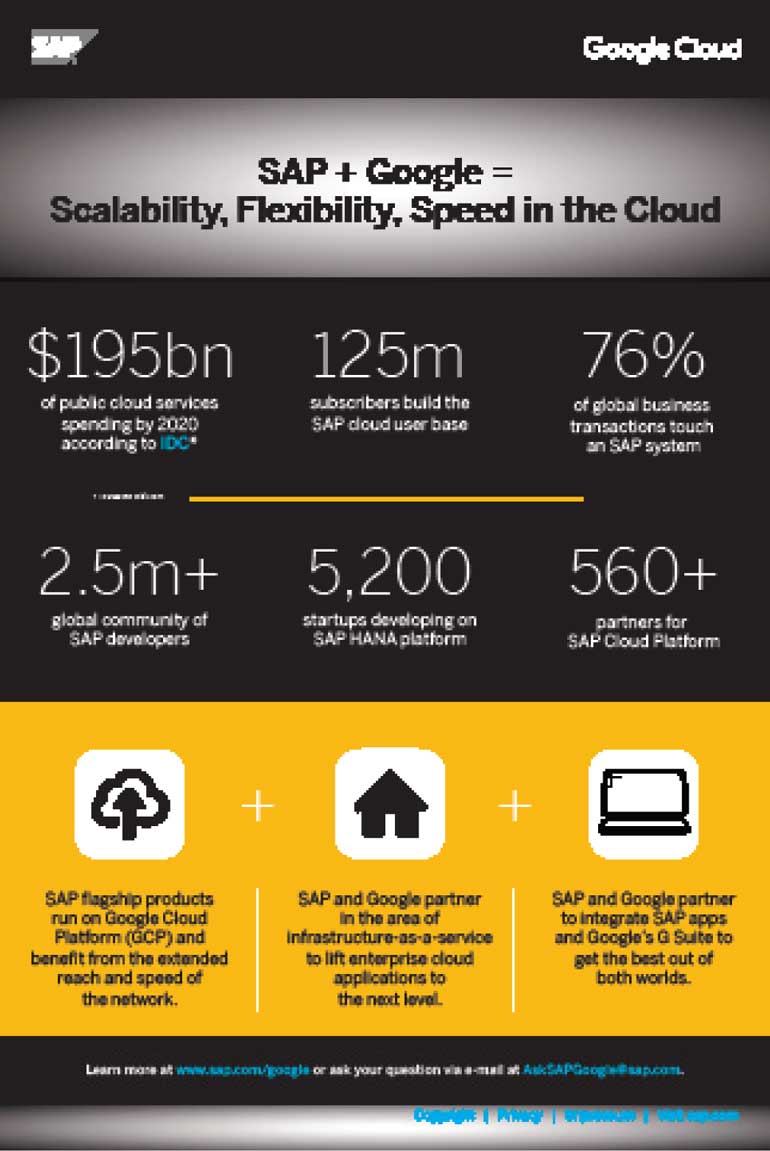Monday Feb 16, 2026
Monday Feb 16, 2026
Wednesday, 15 March 2017 00:00 - - {{hitsCtrl.values.hits}}
 By Daniel Schneiss
By Daniel Schneiss
Not too long ago, SAP’s core business was centred solely around applications and business processes. However, based on our constant interactions with our customers, we soon realised that they had additional needs, such as making data-driven decisions and support when it comes to performance and analytics. As a result, we knew classic databases needed to improve in the area of real-time data processing. We started to work on an in-memory database platform – and we are not talking just a basic database investment, but an entirely new approach to data management here.
With SAP HANA, companies can process and analyse large volumes of data in memory to deliver real-time insights to enterprise applications and analytic tools – enabling business users to make more informed decisions and act in the moment. SAP HANA has so-called translytical capabilities, meaning that it supports transactional and analytical workloads in real time on a single unified database without giving up integrity, performance, and scale.
Developed natively for the SAP HANA platform, we introduced SAP S/4HANA in 2015. SAP S/4HANA is a business suite that enables organisations of all sizes and industries to run their core business processes digitally and live, and is characterised by simplification, high effectiveness, and comprehensive embedded analytical and machine learning capabilities.
So once we enabled customers to run a live business with SAP HANA’s translytical capabilities, what is the next chapter?
Looking forward, broad accessibility of our technology is key. The vision for the next “database platform revolution” is one of ubiquitous access. This means not just innovating on the SAP HANA platform itself, but ensuring the availability of this technology to further grow the SAP HANA developer’s community.
To reach this goal, SAP is looking to the cloud as a possibility to further optimise and leverage completely new usage scenarios, either through SAP or a third party partner. SAP thus is investing into its strategic partnerships and technologies. Here are some examples of SAP’s most recent investments into driving broad accessibility:
n We announced the general availability of SAP HANA on Google Cloud Platform (GCP), certifying that SAP HANA can be deployed on Google Cloud Platform as Infrastructure as a Service (IaaS). With this, we enable businesses of all sizes to benefit from real-time insights and to run and deploy mission-critical enterprise applications with confidence on a scalable and secure cloud infrastructure. GCP will provide an automated provisioning capability of certified SAP HANA instances to deliver enterprise-grade security, high availability, disaster recovery, and scalability.
n We will make use of the Google Cloud Launcher Marketplace, Google’s marketplace for enterprise-grade partner applications, to offer products to developers, partners and customers, starting with the developer edition of SAP HANA, express edition. SAP HANA, express edition is a streamlined version of SAP HANA that can run on laptops and other resource-constrained hosts, such as a cloud-hosted virtual machine. It enables developers to build and deploy production applications that use up to 32GB of database memory at no cost for the SAP software. In addition, we today announced that developers using the free SAP HANA, express edition can expand their memory use by purchasing a license from the SAP® Store.
With SAP HANA, express edition both as a downloadable option and as a cloud deployment, e.g. in SAP Cloud Platform, it gets really easy to develop SAP HANA applications anywhere. This enables customers, partners, and developers to leverage SAP HANA in their preferred environment.
In addition, the free usage and easy download gets developers around the world familiarised with developing SAP HANA native applications. Since SAP HANA is certified and available on SAP Cloud Platform and several other Platform as a Service (PaaS) partner platforms, users who develop native SAP HANA applications or services can deploy their solutions on multiple PaaS platforms, making the SAP HANA platform an abstraction layer of PaaS platforms for native SAP HANA applications. Thus, SAP HANA continues to further grow its community in numbers and expertise among developers outside of SAP.
As we do and did with all our products, including SAP HANA, SAP S/4HANA and SAP HANA, express edition, we will keep putting our customers front and centre of everything we do. This means we will continue to deliver on SAP’s cloud commitment by further expanding SAP HANA cloud services in the future. With text analysis as a Service and Earth Observation Analysis as a service, we already took another important step in this direction.
It goes without saying that we will keep thinking beyond the terms of database platform innovation. We will only be successful if we focus on winning from innovation to execution and market adoption ensuring tight collaboration across all involved functions. This end to end approach allows us to take in and consider every perspective on innovation to drive the next “database platform revolution”. There is huge potential to capture, and we are just getting started. So stay tuned!
(The writer is Senior Vice President and globally responsible for SAP HANA development. He joined SAP in 1995 as a developer and acquired a broad and deep understanding of SAP’s business and technology with a clear focus on data management.)